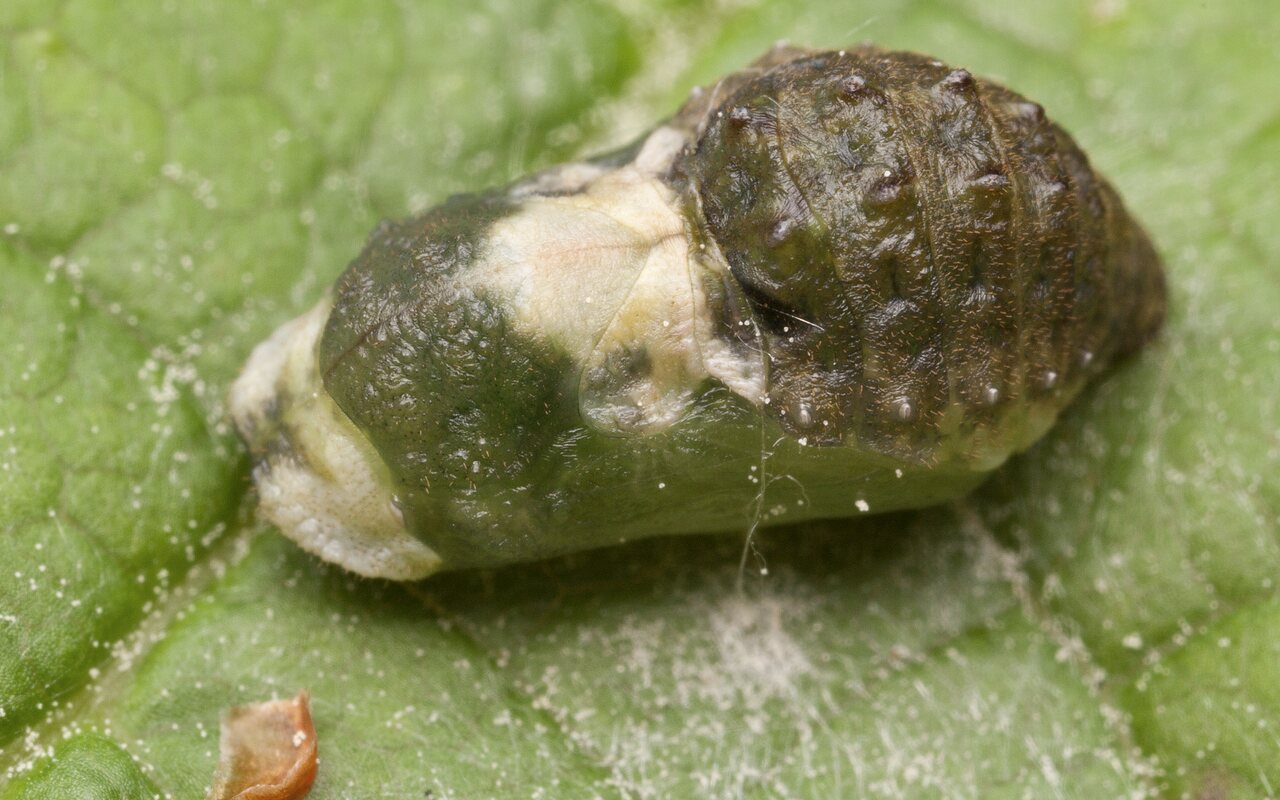3/3

Satyrium pruni pupa · slyvinis uodeguotis, lėliukė
- Fixsenia pruni
- black hairstreak
- Pflaumen-Zipfelfalter
- slyvinis uodeguotis
- plūmju astainītis
- ogończyk śliwowiec
- en.wikipedia.org/wiki/Black_hairstreak
- pyrgus.de/Satyrium_pruni_en.html
- leps.it/indexjs.htm?SpeciesPages/SatyrPruni.htm
Eggs are laid singly on young blackthorn Prunus spinosa growth and it is this stage which hibernates. Although blackthorn is the main foodplant, wild plum Prunus domestica and other Prunus spp are occasionally used. The caterpillar hatches the following spring, at the end of April, just before the buds open and feeds on the flower buds. Older larvae are green and well camouflaged against the leaves on which they feed. Pupation takes place on leaves or twigs in June and the pupae are patterned black and white to mimic a bird dropping, as a defence against being eaten. The adult butterflies of this single-brood (univoltine) species are on the wing from the end of June to mid July.
‥
0 comments
Add a comment